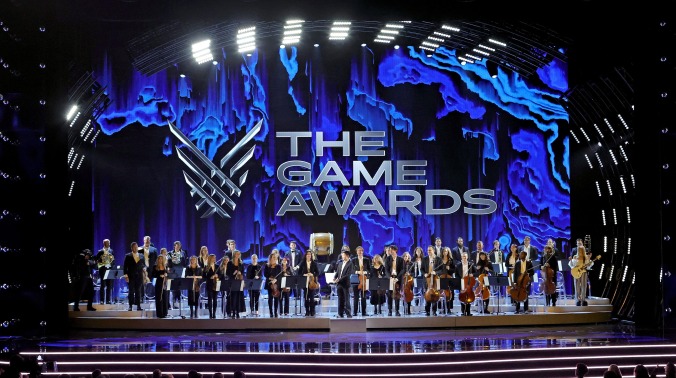The Game Awards want to be gaming's Oscars, but they're really just its Super Bowl
The annual Game Awards are just like the Big Game: Stuffed with corporate sponsorships, and most of us are only watching for the commercials

Every Friday, A.V. Club staffers kick off our weekly open thread for the discussion of gaming plans and recent gaming glories, but of course, the real action is down in the comments, where we invite you to answer our eternal question: What Are You Playing This Weekend?
Now entering its eighth year—with said installment arriving next month, on December 8—Geoff Keighley’s annual awards show The Game Awards is working as hard as ever to convince people that it’s the Oscars of gaming. That is: It’s a showy, corporation-friendly celebration of the medium’s safest bets and most average successes that nobody actually seems to like or respect all that much, but which we are all, for reasons that are murky at best, forced to concede does, in fact, exist.
The nominations for the 2022 TGAs, released earlier this week, are typical for the bunch: The most expensive games of the year—most of which got big trailer reveals or other promotions at earlier installments of the Awards—all take up the top spots, with a few “indie” titles sprinkled around just to keep things interesting. It’s not that games like God Of War Ragnarök and Horizon Forbidden West aren’t good games—as the person who reviewed both titles for the site, I can attest that they’re both very well-made examples of the AAA gaming form—so much as the fact that the intense corporate buy-in Keighley and his team have achieved with this show renders the whole thing feeling irrevocably beholden to The Money Machine.
This year, the biggest conversation surrounding the Awards—besides popular gaming account Nibellion quitting Twitter on just about the same day that their calm and collected approach to gaming news was nominated for “Content Creator Of The Year”—has been the conversation about “Best Narrative,” and specifically about Elden Ring’s inclusion in the nominees for the honor.
This conversation—between those who advocate for more traditional storytelling vs. From Software’s indirect approach to spinning its sprawling tale of godly siblings squabbling over a broken world—is less a symptom of Elden Ring’s merits, though, than it is the nebulous descriptor for the category. To draw out the Oscars parallels, the Narrative award is pretty clearly meant to map on to something like “Best Original Screenplay,” with past winners including beloved word nerd games like Disco Elysium and Red Dead Redemption 2. But gaming is only sometimes a writer’s medium; narrative in games is what happens as the players navigate a game’s world as much, or more, than actors navigating the words that are in the script. Attempting to shove a traditional story like God Of War Ragnarök, and Elden Ring, and a deliberately puzzle-like story like Immortality into one category, then having them fight it out, is just begging for the whole exercise to fall apart.
Best Narrative is nebulous mostly because The Game Awards themselves are nebulous; they exist in part to give platforms to the biggest releases—what other reason could there be for Most Anticipated Game, a category entirely predicated on the power of hype?—and so the categories must be melded to those needs. (Best Narrative, specifically, feels like a deliberate buffer against those criticizing the awards for being purely about the commercial, allowing a few more “artistic” games to get recognition as well.) Honestly, it’s enough to make me conclude that the TGAs don’t map closest to the Oscars at all, but another major American watercooler event. After all, we’ve already got a heavily corporate-sponsored, largely meaningless competition that most people watch only for the commercials: Congratulations to all involved for giving the medium its very own Super Bowl.